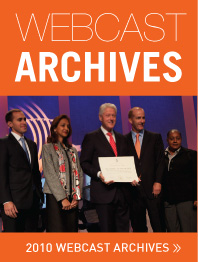Kyrgyzstan- Shanghai Cooperation Organization: Shanghai Cooperation Organization (SCO) member states will help Kyrgyzstan stabilize the situation in the country's southern region, a source in the Russian Federal Security Service said 23 September after a regional SCO anti-terrorism council meeting, Interfax reported.
The council decided that law-enforcement agencies of member states will assist Kyrgyzstan maintain security by organizing information exchanges regarding regional militant activities, the source said. The source also said the council elected Chinese Deputy Minister for Public Security Meng Hongwei to chair the anti-terrorism council for one year. The council is set to meet next in Usbekistan in March 2011. Representatives from Kazakhstan, China, Kyrgyzstan, Russia, Tajikistan and Uzbekistan attended the meeting.
NIGHTWATCH Comment: The Moscow-centered Collective Security Treaty Organization (CSTO) declined to undertake a more intrusive intervention mission. The Beijing-led SCO mission is primarily an intelligence exchange, but potentially affords China unprecedented access to information about central Asian security issues. The SCO will accrue positive publicity for its limited mission, upstaging the CSTO.
The Chinese-led organization looks cooperative. The Russian-led organization looks timid. This in fact confuses different missions and burdens, but the public perception is likely to favor the Chinese-led initiative in the Russian sphere of influence.
Kyrgyzstan-Russia: Issues between Russia and Kyrgyzstan over Russia's military bases in Kyrgyzstan have been addressed and an agreement will be signed, probably on the 24
NIGHTWATCH Comment: The Russians have four military facilities or bases in Kyrgyzstan, including Kant air base. Under the new agreement they will be consolidated in a single command structure and all will be governed by the new agreement, instead of four separate agreements. Russia's lease will probably be good for the next four or five decades.
NIGHTWATCH KGS Home
Phi Beta Iota: Reference: Global Governance 2025 completely missed both the Hybrid and the Open models of governance that are displacing institutionalized ineptitude now characteristic of most governments, all unable to micro-manage complexity or achieve resilience. The above report suggests that Kyryzstan could be an early node where multinational information-sharing and sense-making is more influential, more effective, and more profitable, than standing military bases, but the two can co-exist. See also Worth a Look: Future of Business is Information Sharing. To appreciate such nuances one needs a strategic analytic modeland the inclination to actually understand the eight tribes of intelligence, “true costs,” and all other aspect of holistic reality.






